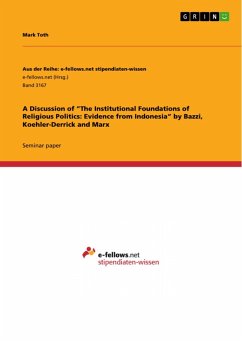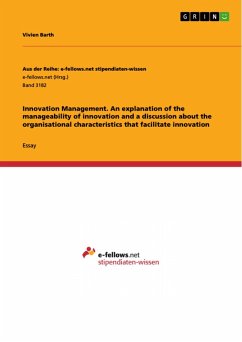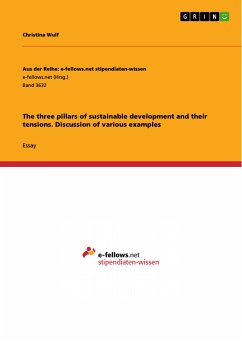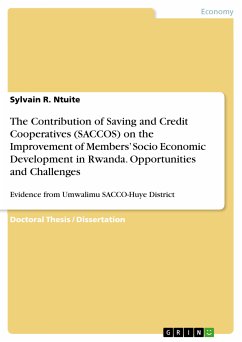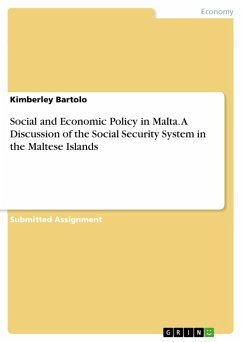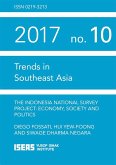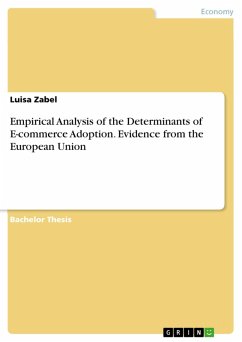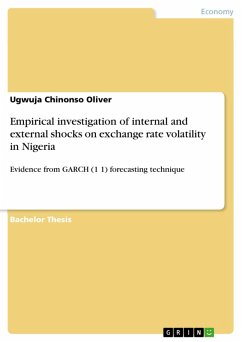Seminar paper from the year 2019 in the subject Economics - Case Scenarios, grade: 1,0, LMU Munich (Volkswirtschaftslehre), course: Schwerpunktseminar "The Economics of Religion", language: English, abstract: This thesis discusses a paper about a natural historical experiment in Indonesia looking at the long-run effects of Islamic institutions on political Islamism. The authors use the definition of Islamism as a political movement which relies on fundamentalist Islamic values that it tries to implement into modern social and political life. The paper adds to the current research about the economics of religion which considers religion as an independent variable and looks at the influence of religion and its cultural implications on society, in this case the question how political outcomes are related to religion and religious institutions. The foundation of the natural experiment is the Basic Agrarian Law (BAL) from 1960 during the era of president Sukarno. The goal of this reform was to reduce land inequality through expropriations of private landholdings. Nonetheless, religious properties were excluded, which had the effect that more people endowed Islamic lands called awqaf (singular: waqf). These properties are inalienable and used as sites for mosques and Islamic schools. The reform failed and was later reversed, but the newly created awqaf and the institutions located on them remained due to their religious status. Bazzi et al. argue that this has had a long-run effect on the support for political Islamism, since especially the Islamic schools influence local political views. To test their hypotheses empirically, the authors apply an "RDiD" design, which combines a Difference-in-Differences approach with a Regression Discontinuity design. The results show that the number of lands under waqf and the Islamic institutions situated on them indeed increased as a reaction to the land reform. Apart from the positive long-run effect on the support for political Islamism in districts which were targeted more intensely by the BAL, measured by looking at the voting results of elections in 1999 and 2009, the empirical analysis reveals a higher importance of candidates' religion and religiosity as well as an increase in sharia (Islamic law) regulations in these regions.
Dieser Download kann aus rechtlichen Gründen nur mit Rechnungsadresse in A, B, BG, CY, CZ, D, DK, EW, E, FIN, F, GR, HR, H, IRL, I, LT, L, LR, M, NL, PL, P, R, S, SLO, SK ausgeliefert werden.

